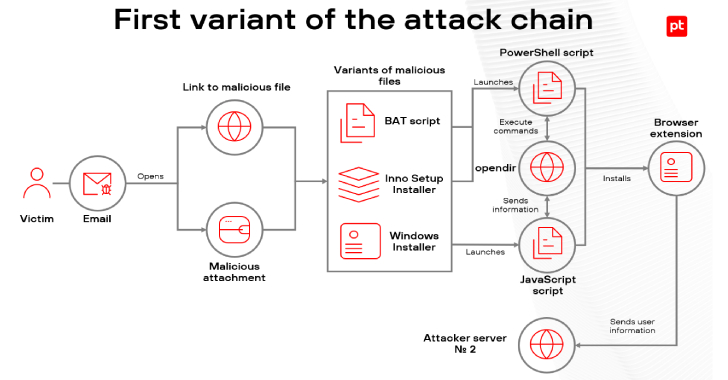
The Top Ten Threats Every Cloud Technology Analyst Defends Against
In today’s digital landscape, cloud technology has revolutionized the way businesses operate. It offers scalability, flexibility, and cost-efficiency that traditional on-premises solutions can’t match. However, this technological marvel also comes with its own set of vulnerabilities and threats. Cloud Technology Analysts play a critical role in defending against these threats to ensure the security and reliability of cloud-based systems. In this article, we’ll delve into the top ten threats that cloud technology analysts face in their day-to-day operations.
- Data Breaches
Data breaches are a nightmare scenario for any organization. Cloud technology analysts must constantly guard against unauthorized access to sensitive information. Whether it is customer data, intellectual property, or financial records, a data breach can have catastrophic consequences. Analysts employ robust encryption, access controls, and intrusion detection systems to thwart cybercriminals trying to infiltrate cloud systems. - Insider Threats
Sometimes, the most significant threats come from within an organization. Disgruntled employees or contractors with malicious intent can exploit their privileged access to compromise data or disrupt services. Cloud technology analysts must implement monitoring and behavioral analytics tools to detect unusual activities and prevent insider threats. - DDoS Attacks
Distributed Denial of Service (DDoS) attacks can overwhelm cloud servers with an enormous volume of traffic, rendering services inaccessible to users. Analysts deploy advanced DDoS mitigation techniques such as traffic filtering and load balancing to mitigate these attacks and maintain service availability. - Phishing and Social Engineering
Phishing attacks target individuals within an organization, attempting to trick them into revealing sensitive information or installing malware. Cloud technology analysts must educate users about the dangers of phishing and implement email filtering and link scanning solutions to detect and block phishing attempts. - Inadequate Identity and Access Management (IAM)
Weak or misconfigured identity and access management can lead to unauthorized users gaining access to cloud resources. Analysts are responsible for setting up strong IAM policies, enforcing the principle of least privilege, and regularly reviewing and revoking access to reduce the risk of security breaches. - Data Loss
Data loss can occur due to various factors, including accidental deletion, hardware failures, or software glitches. Cloud technology analysts implement robust backup and disaster recovery plans to ensure data integrity and availability, even in the face of unforeseen incidents. - Malware and Ransomware
Malware and ransomware threats are constantly evolving and pose a significant risk to cloud systems. Analysts deploy antivirus software, intrusion detection systems, and behavior-based anomaly detection to detect and mitigate these threats before they can cause damage. - Compliance and Legal Issues
Cloud technology analysts must navigate a complex landscape of regulatory requirements and legal obligations. Non-compliance can result in hefty fines and reputational damage. Analysts work closely with legal teams to ensure that cloud systems adhere to industry-specific regulations and standards. - Resource Overutilization
Cloud resources are billed based on usage, and overutilization can lead to unexpectedly high costs. Analysts constantly monitor resource utilization, implement auto-scaling solutions, and optimize cloud infrastructure to ensure efficient resource allocation and cost control. - Cloud Service Provider Vulnerabilities
Even the most reputable cloud service providers can experience vulnerabilities and security lapses. Analysts maintain a vigilant eye on their provider’s security updates and patches, ensuring that the cloud infrastructure remains protected against emerging threats.
In addition to these ten threats, cloud technology analysts also need to keep an eye on emerging trends and challenges in the ever-evolving landscape of cloud technology. Some of these trends include:
- Multi-Cloud and Hybrid Cloud Environments
Many organizations are adopting multi-cloud or hybrid cloud strategies to diversify their cloud providers and enhance flexibility. This trend introduces new complexities, as analysts must manage security and data across multiple platforms seamlessly. - Zero-Trust Security
Zero-trust security principles, which assume that no one, whether inside or outside the organization, should be trusted by default, are gaining prominence. Analysts are adapting their security strategies to implement these principles effectively. - Containerization and Serverless Computing
Containerization and serverless computing are changing how applications are deployed and managed in the cloud. Analysts need to understand the unique security challenges associated with these technologies and implement appropriate safeguards. - Artificial Intelligence and Machine Learning
AI and machine learning are being used to detect and respond to security threats in real-time. Analysts are incorporating these technologies into their security arsenal to improve threat detection and response capabilities. - DevSecOps
The integration of security into the DevOps process, known as DevSecOps, is becoming essential for ensuring the security of cloud applications. Analysts collaborate closely with development and operations teams to embed security practices throughout the software development lifecycle.
In conclusion, cloud technology analysts play a critical role in defending against a wide range of threats that can compromise the security, integrity, and availability of cloud-based systems. These professionals must stay up-to-date with the latest security trends and technologies while maintaining a proactive stance against both known and emerging threats. By implementing robust security measures, educating users, and collaborating closely with other teams, cloud technology analysts can help organizations harness the full potential of cloud technology while minimizing the associated risks. As cloud technology continues to evolve, the role of these analysts will remain pivotal in safeguarding digital assets and ensuring the smooth operation of cloud-based services.
Contact Cyber Defense Advisors to learn more about our Cloud Technology Analyst solutions.




